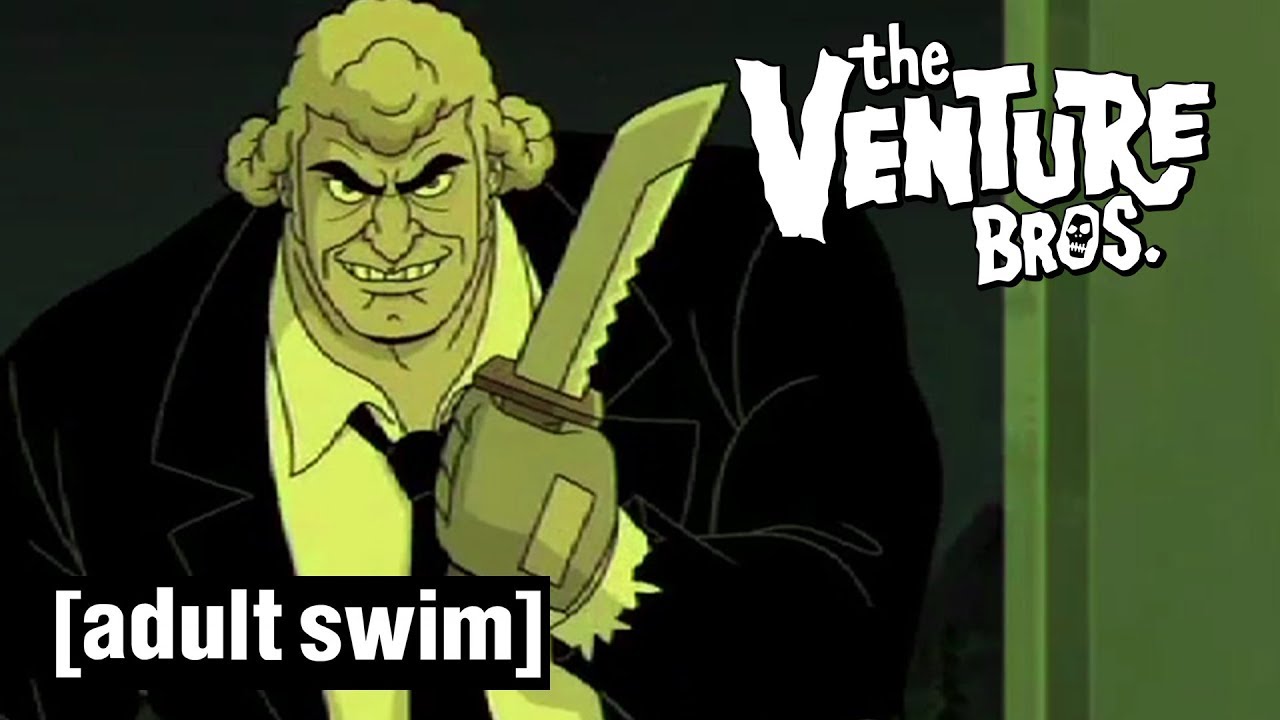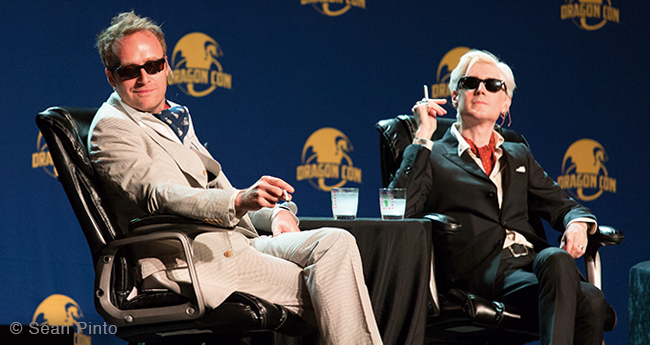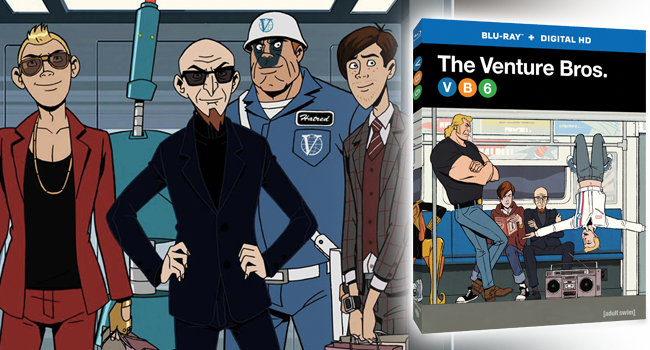Episode Review of “Bright Light, Dean City”
Bright Lights, Dean City can be separated into three sub-storylines, all of which eventually braid together to provide satisfying narrative cohesion at the final curtain.
The Revenge Society
The episode opens with an imagined sequence of murder and frame-ups, narrated by Phantom Limb’s exquisitely rich villainous voice. While Ünderbheit seems keen on the plan and eager to please Phantom Limb, Professor Impossible is squeamish about the amount of death involved. He is also less inclined to fall into a second-fiddle position to Phantom Limb, even suggesting a different name for their group (coincidentally, there IS a female-fronted band called the Violet Hour, and they’re awesome.
Lest we feel he is losing his nerve for villainy, however, it is revealed that he is using his pyrotechnically-impaired brother-in-law, Cody, to power Impossible Plaza. The dynamic of this trio is interesting; all three men were once leaders. Considering Ünderbheit’s fall into banishment and poverty from his lofty beginnings, it’s unsurprising to see him so willing to follow behind another’s command. Professor Impossible’s leadership came both from his genius and success in science as well as his controlling nature; he kept his team/family hidden from the rest of the world and governed Impossible Industries quite rigidly for one so physically flexible. Losing Sally took that mirage of control away, which initiated his descent into madness and instability. When Limb offered him a new path, he slowly returned to his former control-freak self, upsetting the power-balance between the two men. At this point it is too early to say whether the Revenge Society will suffer for having too many chiefs; if they can solve their differences, they may benefit from a more socialist team dynamic (certainly it’s been proven that the monarchy-style system of the Guild has become outdated). They took their first step toward a successful team relationship by unanimously agreeing that the root of many their woes and thus the target of their arching would be Rusty Venture.
Rusty’s musical-theater-life-crisis (it’s unfair to call it a mid-life crisis—his neuroses are too numerous to categorize them by age): While initially pathetic, typically self-involved and oblivious of anyone surrounding him, it’s almost nice to see Rusty attempting something different. Though predestined for failure as we know him to be, upon deeper examination, it was rewarding to see Rusty attempt to do something creative. His duet with Nathan Fillion’s Brown Widow was perfect—it provided him with a kind of validation he has never received, nor ever will again, and was a delight for Fillion-fans in the VentureVerse.
Dean’s airtime has been limited lately, and his development has suffered for it. The confidence he developed from Perchance to Dean through The Better Man has evidently been worn-away by the renewed vigor with which his father attempts to control his life. In 4.13, briefly away from his father’s constraints, we see some of his pluck and boyish charm return. When not dutifully performing his menial tasks at Impossible Industries, we see him hard at work on his newsletter, or literally climbing the walls of his apartment in his Spiderman pajamas.
What’s really special about these activities is their self-referential nature. VB is well-known both for its outside references as well as its ability to recall pre-established notions from its own story-line. We have seen Dean working on his newsletter in several past episodes (and his Spider-jammies are near omni-present), and now he reveals to Brown Widow that he has wanted to be a boy reporter all along. Just as Dean begins to unload his burdens to someone who seems sympathetic, however, his father interrupts. From a metafictional perspective, the scene where Dean speaks to Brown Widow is amazing; clearly a lifelong Spiderman fan with similar dreams of journalism á la Peter Parker, it is never addressed that he is interacting with his universe’s real-life version of Spiderman. It also provides a deeper juxtaposition of the brothers’ personalities (going along well with the simultaneous juxtaposed timeline of this episode and last week’s). Hank uses Batman as his model, displaying his inclinations toward a darker, more mature nature and the profession of a detective, willing to accept the mantle of Manhood. Dean, who loves Spiderman, projects an aura of unfaltering innocence spiked with an honor-bound vigilance to duty (recall his rape-whistle and baton methods of defense as well as his need to save Cody, and then evacuate Impossible Industries using the proper fire exits). He truly wants to be a BOY reporter, wishing to remain in a Newsies-esque universe where wholesomeness, morality, and innocence can be preserved.
The episode wrapped with a resolve of last week’s cliffhanger using a Bizarro-world-style reference to alternate dimensions. Unwelcome both there and in the Big Apple, Rusty proves once again to be such a fuckin’ tourist.



